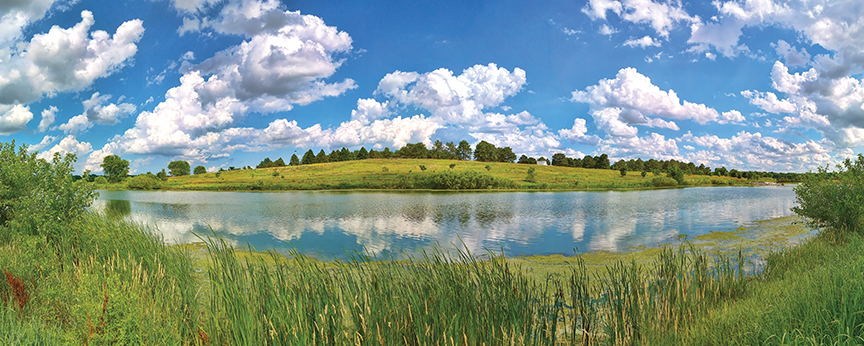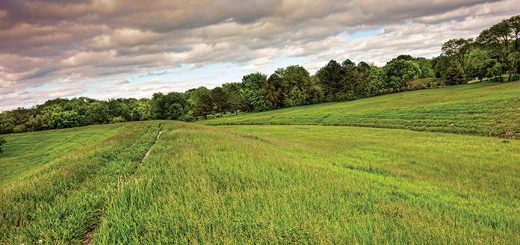Lincoln, A Sustainable City

by Frank E. Uhlarik
Lincoln routinely makes dozens of “Top Ten” listings ranging from such community attributes as employment, financial stability and entrepreneurship; to friendliest, happiest and even some beer drinking lists (note this last close association). Lincoln’s increased national attention over the last decade has been facilitated by visionary leadership and an engaged community.
Quietly accompanying this notoriety is Lincoln’s underlying home grown commitment to sustainability principles and practices. Long before the specter of climate change drove communities to adopt sustainability and climate action plans, Lincoln’s citizens and governmental officials were active on many fronts working to protect and enhance the unique environmental and cultural characteristics of the community. Boards, committees and advisory groups dating back to the 1970s have collaborated on all manner of programs and projects contributing to a more sustainable Lincoln.
So let’s take a look at some of Lincoln’s own “Top Ten” sustainability initiatives. While I may miss much of the historic initiatives that have taken place (my apologies to all of Lincoln’s early sustainability pioneers for this oversight), I wanted to highlight some of the more current examples of Lincoln’s efforts that I urge residents and visitors alike to experience or learn more about:
- Youth Outreach and Engagement
Through programs and events such as Garbology for second grade students, the annual Water Conservation Poster Contest for fifth graders and Waterfest at Holmes Lake, the community’s youth are engaging in hands-on resource conservation and environmental protection concepts and activities they can in turn teach their parents about!
- Wastewater Energy Recovery Operations
Commissioned in 2014, the Central Renewable Energy System (CRES) represents a collaboration between the City of Lincoln’s Theresa St. Water Resource Recovery Facility and the University of Nebraska’s Innovation Campus to capture the heat value of treated wastewater (effluent) for heating and cooling at Innovation Campus—providing a renewable energy source for the campus which would otherwise be wasted thermal energy. The Theresa St. facility has also used digester gas as a fuel for co-generation of electricity for over 25 years. Plans are currently being made to modify this process to generate “renewable natural gas” or RNG for fueling the City’s StarTran Bus Fleet. Meanwhile, at the city’s smaller Northeast Water Resource Recovery Facility, treated effluent has been used for cooling water at the nearby Terry Bundy Generating Station operated by Lincoln Electric System (LES) since 2003. Celebrating the power of bio-solids in Lincoln!
- Landfill Gas Recovery
Since 2013, landfill gas from the Bluff Road Solid Waste Facility has been captured for fueling a nearby 1600 kilowatt engine/generator set operated by LES – yet another innovative use of renewable energy in the community and cooperative effort with our public power provider.
- LES Community Solar Project
The first utility-scale solar project in Nebraska, the recently dedicated solar array located at 75th and W. Holdrege Street, uses 15,333 solar panels to produce enough energy to power about 900 typical Lincoln homes. Renewable energy now makes up 33% of LES’ energy generation and 48% of its retail sales portfolio.
- Bike Friendly Community
Just named the 2016 National Bike Challenge winner, Lincoln has also recently completed the N Street protected bikeway and will soon be implementing a bike share program.
- Parks and Open Space
Lincoln maintains high percentages of parks and green space well above national and peer cities including 125 parks, 131 miles of trails, seven recreation centers and five golf courses all professionally staffed and managed by the Lincoln Parks and Recreation Department.
- Urban Agriculture
A flourishing and passionate movement supporting urban agriculture in Lincoln has been formalized as a “Food Policy Council”. The Lincoln-Lancaster County Food Policy Council (LLFPC) is a diverse group of farmers, gardeners, businesses, organizations, and individuals with one thing in common: care for improving the local food system. A couple of representative projects and initiatives related to urban agriculture in Lincoln include the Southern Heights Food Forest, Peter Pan Community Garden and the Hawley Hamlet.
- Saline Wetland Preservation
Lincoln/Lancaster County and Southern Saunders counties in Nebraska are home to rare and unique Eastern Saline Wetlands. State and local agencies have joined forces to establish the Saline Wetlands Conservation Partnership which has established an implementation plan to address the preservation of these special lands which can be viewed at various locations in and near Lincoln.
- Electric Vehicle Fueling Infrastructure
By the end of 2016 the City will have 22 electric vehicle (EV) charging stations in public parking garages in the downtown area available for public use. The popularity of EVs continues to rise due to the economic and environmental benefits of ownership. Through this infrastructure initiative, the city is continuing to monitor demand and support EV expansion together with the private sector.
- Recycling and Household
Hazardous Waste Services
The City of Lincoln provides convenient drop-off recycling service for residents at 23 locations around town making it easy to divert recyclable material from disposal and extending the life of our Bluff Road Landfill. The city will soon also have a permanent household hazardous waste facility located at the North 48th Street Solid Waste Management Facility for collection of household and small business hazardous wastes thus providing toxics diversion from the landfill and protection of groundwater resources.
Through these Top Ten initiatives and many others, Lincoln is striving to become a more sustainable community seeking continual improvement of environmental, social and economic conditions for our residents and visitors. While recognized as the Silicon Prairie—a hotbed of entrepreneurial and tech start-ups, Lincoln is also committed to sustainable practices as a necessary component of conserving natural attributes and resources and attracting like-minded people and businesses to our great City!














Recent Comments